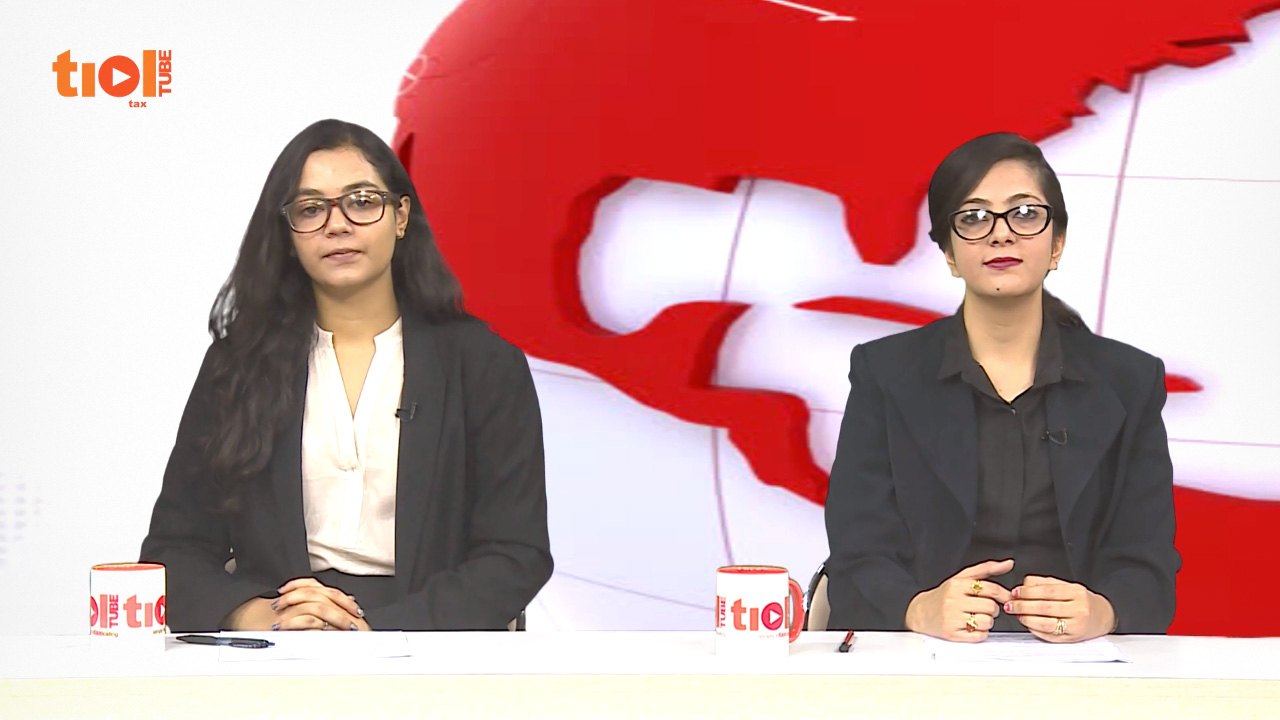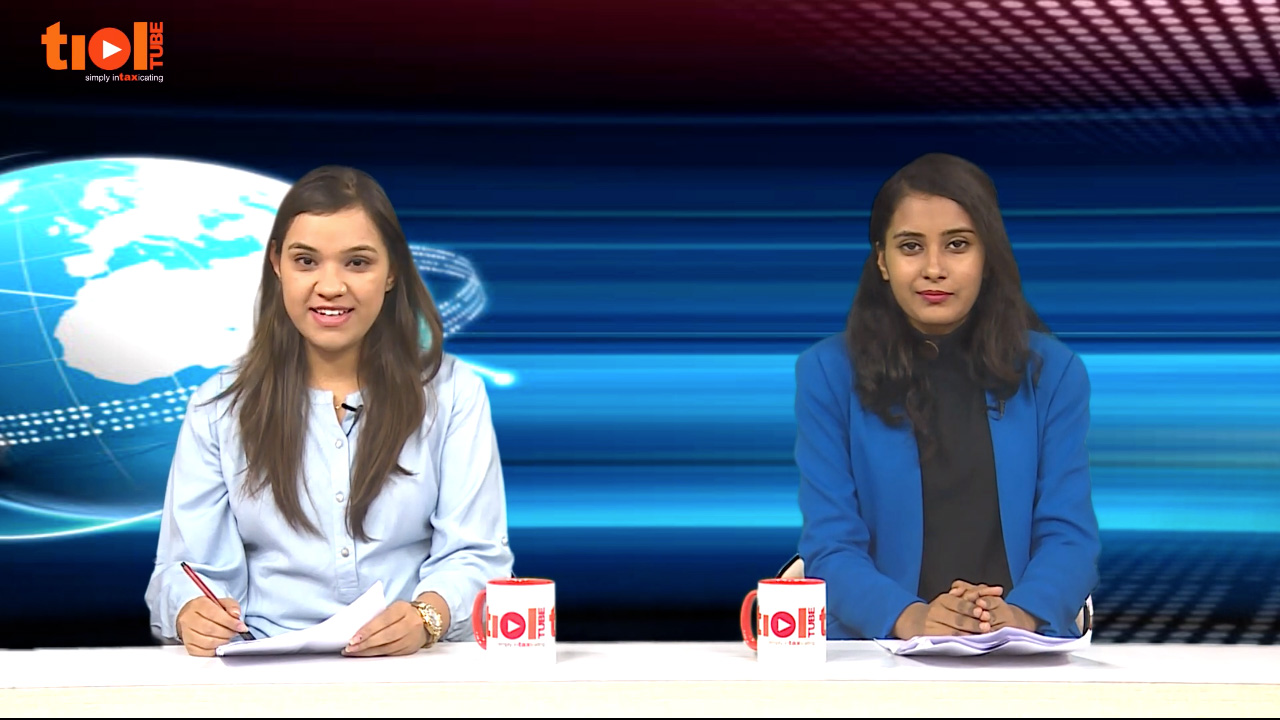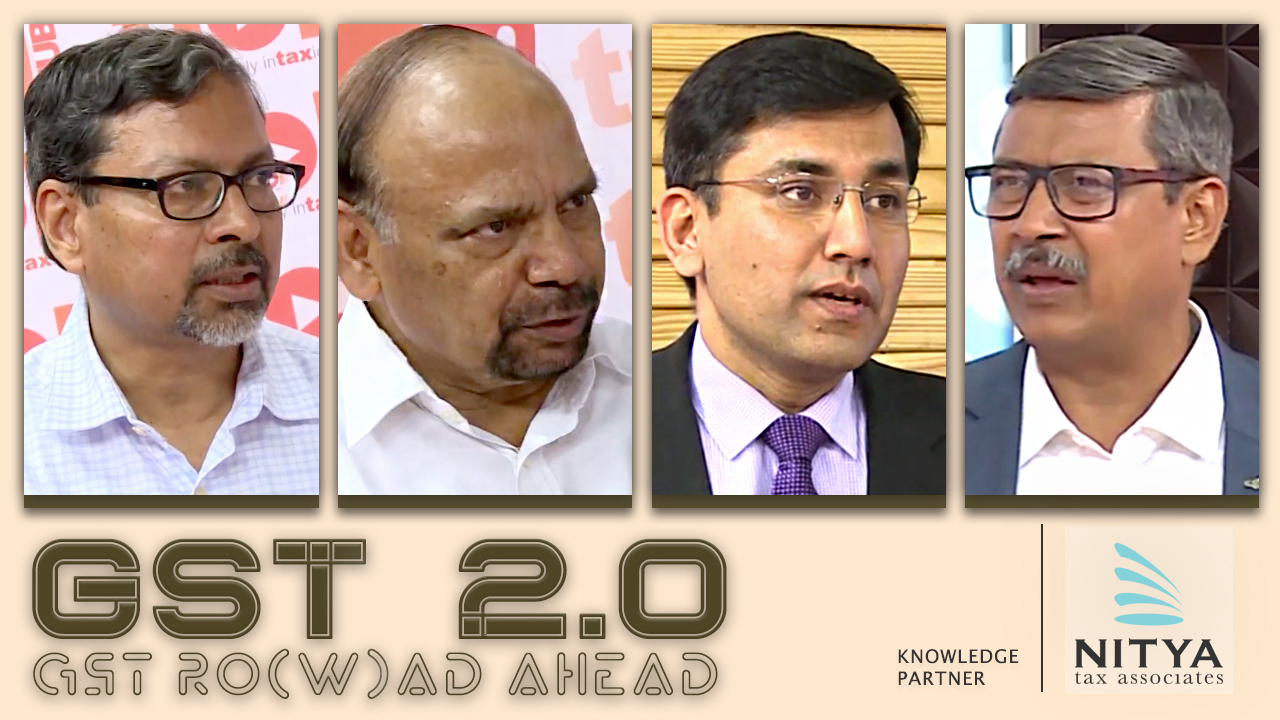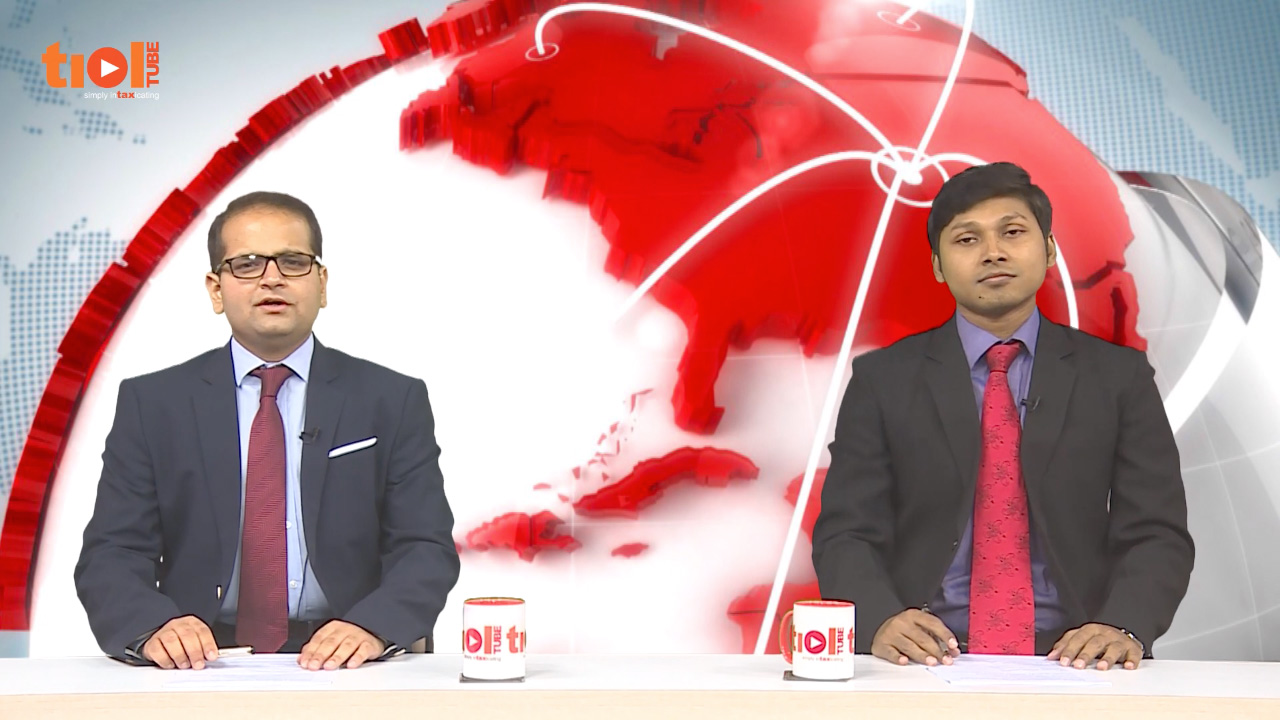|
SERVICE TAX
2019-TIOL-1650-CESTAT-AHM
Innovate Securities Pvt Ltd Vs CCE & ST
ST - Whether the charges of National Stock Exchange (NSE)/ Bombay Stock Exchange (BSE) such as transaction charges, SEBI turn over fees paid to the NSE/BSE and collecting reimbursement of the same from their clients is liable to service tax in the hands of assessee being a stock broker - On this issue much water has flown as in various judgments, this Tribunal has consistently held that all these charges being statutory charges as per SEBI Rules, should not be liable for service tax - In view of the judgment in Span Caplease Pvt. Limited , the issue is settled - Therefore, following the ratio of said judgment, the impugned order is not sustainable - Accordingly, the same is set-aside: CESTAT
- Appeal allowed: AHMEDABAD CESTAT
2019-TIOL-1649-CESTAT-KOL
CCE & ST Vs TATA Ryerson Ltd
ST - Activity of cutting/slitting of duty paid C.R. coils carried out by TRL during the period 1.3.2005 to 18.03.2005 on processing charges basis, as conversion agent of Tata Steel - Allegation is that the said activity had resulted in TRL rendering taxable service of 'Business Auxiliary Service' under the Finance Act, 1994 and it had failed to make payment of the service tax payable - demand of Service Tax was confirmed by the Additional Commissioner, however, same was set aside by the Commissioner(A) and, therefore, Revenue is in appeal before CESTAT.
Held: Revenue having collected, without any demur or reservation, central excise duty on the subject H.R. coils during the material period and having not refunded the same to TRL, cannot now turn around and contend that TRL was liable to make payment of service tax on the ground that the job of slitting/cutting of H.R. coils amounted to providing business auxiliary services within the meaning of the Finance Act, 1994 - Bench is in respectful agreement with the Tribunal decision in K. R. Packaging Vs. Commissioner of C.Ex.& Service Tax - following the same, no infirmity found in the impugned order - Revenue appeal dismissed: CESTAT [para 10, 11]
- Appeal dismissed: KOLKATA CESTAT
CENTRAL EXCISE
2019-TIOL-1648-CESTAT-HYD
ITC Ltd Vs CCE
CX - The issue at hand pertains to an amount equivalent to 10% of the value of exempted goods cleared during the relevant period on grounds that the assessee availed credit on common inputs used for both exempted and dutiable goods & that separate set of accounts had not been maintained & the reversal of credit proportionate to the inputs used is incorrect - SCNs were issued, which culminated into an O-i-O raising duty demand for reversal of credit - Hence the present appeal.
Held: The issue is now well settled vide retrospective amendment to Rule 6 of CENVAT Credit Rules 2004 u/s 73 of the Finance Act 2010 according to which when CENVAT credit on common input used for dutiable and exempted goods was availed, reversal of credit attributable to the inputs used in the manufacture of exempted goods is sufficient - In other words they did not have to reverse 10% of the value of the exempted goods - Besides, as interest stands paid for delay in reversal of credit, case is made out for waiver of penalty: CESTAT
- Assessee's appeal allowed: HYDERABAD CESTAT
2019-TIOL-1647-CESTAT-MAD
Saint Gobain Glass India Ltd Vs CCE
CX - The assessee was manufacturing 'Windshieldd' and clearing them to their sister unit M/s. SGSIL - It further appeared that assessee was raising invoices on SGSIL as if they were removing inputs namely glass green and PVB clear rolls "as such" - It appeared that the assessee ought to have paid duty at 110% at cost of production of windshield in terms of Rule 8 of CEVR, 2000 instead of reversing the credit taken on inputs and paid duty on service charges alone - Accordingly, a SCN was issued to assessee interalia proposing demand of Central Excise duty with interest thereon for the clearances of such windshields - The fact of assessee having manufactured the goods for SGSIL under Notfn 214/86 was evidently not brought to the knowledge of adjudicating authority at any stage, at the same time, these facts had been informed by assessee to the jurisdictional central excise officers earlier to the adjudication - There is a case for remanding the matter so as to give the assessee one more opportunity to explain the matter before adjudicating authority - The matter is therefore remanded to the adjudicating authority who give sufficient opportunity to them to produce necessary documents/evidences to support their contentions that they had indeed done job work for their principals under Notfn 214/86-CE: CESTAT
- Matter remanded: CHENNAI CESTAT
2019-TIOL-1646-CESTAT-BANG
Pepsico India Holding Pvt Ltd Vs CCT & CE
CX - The assessee is engaged in manufacturing of aerated water (soda), flavoured aerated water (Mirinda, Pepsi) and packaged drinking water (Acquafina) and are availing the benefit of CENVAT credit on inputs, capital goods and input services - As soon as the Audit pointed out the wrong availment of CENVAT credit by assessee, they reversed the same along with interest before the issuance of SCN - Further, assessee vide their letter informed the Department that they have taken the credit by mistake and there was no intention to avail excess credit - The Tribunal in various decisions has held that once the duty is paid along with interest before the issuance of SCN and there is no suppression of fact with intent to evade payment of duty, then the assessee is not liable to pay penalty - The impugned order imposing penalty is not sustainable in law: CESTAT
- Appeal allowed: BANGALORE CESTAT
CUSTOMS
NOTIFICATION
ctariffadd19_022
Anti-dumping duty on import of paracetamol from China - Date extended upto June 24, 2019 CASE LAWS
2019-TIOL-1645-CESTAT-MUM
Hindusthan National Glass Industries Ltd Vs CC
Cus - Assessee is in appeal against impugned order arises out of disallowance of refund of duties that are claimed to have been paid in excess following the denial of benefit of notfn 94/96-Cus despite being eligible - Assessee had discharged duty liability on re-import as though the goods had been imported for the first time - There can be no doubt that the excess duty collected was required to be dealt with in accordance with section 27 of Customs Act, 1962 - As pointed out by assessee, notfn 94/1996-Cus does not impose any condition pertaining to availment of MODVAT credit; indeed, except in certain exemption notifications dealing notably with export promotion schemes, the law relating to customs does not make any reference to MODVAT, or to its successor CENVAT, credit - To the extent that the notification is silent on this aspect, the lower authorities, exercising jurisdiction under Customs Act, 1962 could not have made any reference to, or imposed, any condition not contemplated in the exemption notification - Just as exemption notification are to be strictly construed against the importer so, too, must there be no latitude vested with officers of customs to enforce any condition on whim or according to their wisdom - Moreover, CENVAT credit is availed on entry of eligible goods in the factory of manufacture - There is no evidence here of such availment and there is mere presumption of availment, and extent, of such credit - Under the relevant rules, credit availed on goods that are not used in the factory should be reversed and in the event of failure to reverse consequences under other specific statutory provisions would arise - That cannot be read into the provisions of Customs Act, 1962 to deny refund of duty paid in excess of that which was to be collected and held to be so by the Tribunal: CESTAT
- Appeal allowed: MUMBAI CESTAT
2019-TIOL-1644-CESTAT-MAD
Tata Hitachi Construction Machinery Company Ltd Vs CC
Cus - The assessee filed a Warehouse Bill of Entry by declaring wrong exchange rate as Japanese Yen 100 equivalent to Rs. 44.4/- instead of correct exchange rate of Japanese Yen 100 equivalent to Rs. 52.62/- - Accordingly, a SCN was issued to assessee proposing to demand differential duty along with interest in terms of Notfn 114/08 (NT) - For clearance of the warehoused goods for home consumption, the Bill-of-Entry required to be filed as per Section 68 (a) ibid will have to be done so by the transferee only - So also, the import duty, interest, fine and penalties that may be payable as per Section 68 (b) ibid would also be the liability of the transferee and not of the original owner of the goods - In this case, the assessee is the original owner of goods and Shri. Ramesh Balasaheb Jagtap is the transferee - Hence, such import duty that is required to be calculated on assessable value under Section 14 ibid is calculated with reference to the rate of exchange as in force on the date on which the Bill-of-Entry was filed under Section 46 - The rate of duty in case of goods cleared for a warehouse under Section 68 as per the provisions of Section 15 (b), will be that applicable on the date on which the Ex-Bond Bill-of-Entry for home consumption has been filed - However, since the goods stand transferred by assessee to Shri. Ramesh Balasaheb Jagtap, with permission from the competent authority, the liability for paying up all such duty liabilities and other dues, including any differential duty liability on account of incorrect rate of exchange adopted at the first stage of importation, will also have to be necessarily fastened only on the transferee and not on the assessee - Hence, the apparent short levy of Rs. 1,95,726/- with interest thereon on account of such exchange rate, the difference should have been demanded only from Shri. Ramesh Balasaheb Jagtap and not from the assessee - The impugned order cannot therefore be sustained: CESTAT
- Appeal allowed: CHENNAI CESTAT
|










